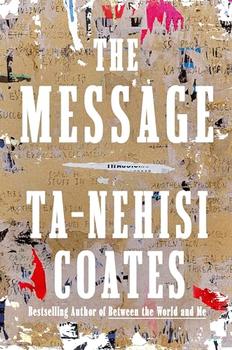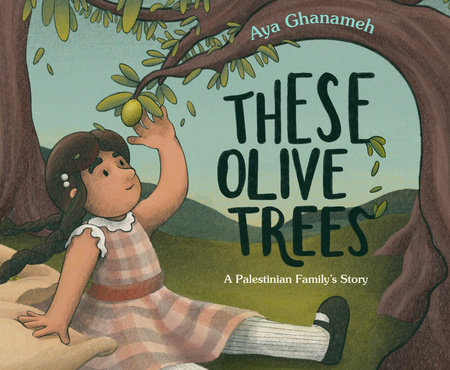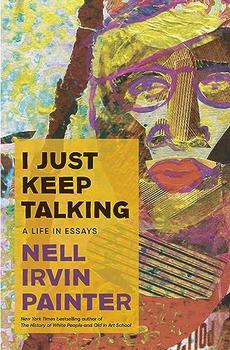Summary | Excerpt | Reviews | Beyond the book | Read-Alikes | Genres & Themes | Author Bio

The #1 New York Times bestselling author of Between the World and Me journeys to three resonant sites of conflict to explore how the stories we tell—and the ones we don't—shape our realities.
Ta-Nehisi Coates originally set out to write a book about writing, in the tradition of Orwell's classic "Politics and the English Language," but found himself grappling with deeper questions about how our stories—our reporting and imaginative narratives and mythmaking—expose and distort our realities.
In the first of the book's three intertwining essays, Coates, on his first trip to Africa, finds himself in two places at once: in Dakar, a modern city in Senegal, and in a mythic kingdom in his mind. Then he takes readers along with him to Columbia, South Carolina, where he reports on his own book's banning, but also explores the larger backlash to the nation's recent reckoning with history and the deeply rooted American mythology so visible in that city—a capital of the Confederacy with statues of segregationists looming over its public squares. Finally, in the book's longest section, Coates travels to Palestine, where he sees with devastating clarity how easily we are misled by nationalist narratives, and the tragedy that lies in the clash between the stories we tell and the reality of life on the ground.
Written at a dramatic moment in American and global life, this work from one of the country's most important writers is about the urgent need to untangle ourselves from the destructive myths that shape our world—and our own souls—and embrace the liberating power of even the most difficult truths.
1
Though we do not wholly believe it yet, the interior life is a real life, and the intangible dreams of people have a tangible effect on the world. —James Baldwin
Comrades, in the summer of 2022, I returned to Howard University to teach writing. Given my rather middling career as a university student, I couldn't help but feel somewhat sheepish about the honor. But it was an honor, because it was there that I met you. Our first class was in the woods—out in rural Virginia, where, with my friend the poet Eve Ewing, we spent two weeks reading, writing, and workshopping. I've been teaching writing in some form or capacity for almost as long as I've been a writer, and the only work I love more is writing itself. But with you I found the former rivaling the latter. I don't mean to slight any other cohort of students I've taught in other times and places—all were talented and hardworking. But the fact is, we were drawn together by something more profound.
I guess it begins ...
Coates begins by bringing readers alongside him to Senegal, on his first trip to Africa. Then, he reports to South Carolina, in response to the attempted banning of one of his books. Lastly, he travels throughout the Middle East to witness firsthand the Israeli-Palestinian conflict (prior to 2023). Here I understood that Coates and I, despite having both lived in a country that contradicts our knowledge of our oppression, were somehow also victims of our own biases. I think neither of us will ever truly comprehend the full scale of the conflict. We will always have incomplete stories. And this will always be the most frustrating aspect of oppression and resistance: how we define these two will shift depending on what version of history we understand, interpret, and believe in. One of the most important subtleties of Coates' message provides great insight into how he tries to move through the world humbly and earnestly...continued
Full Review
 (1331 words)
(1331 words)
(Reviewed by Lisa Ahima).
 Ta-Nehisi Coates' The Message implores readers to consider listening to marginalized people speak on their own experiences. This seems uncontroversial until Coates sheds light on his findings that a startling amount of what the average American knows about Palestine does not come from Palestinians themselves. In the spirit of Coates' body of work, I believe it is imperative to examine marginalized voices without involving the voices of their oppressors. Below are meditations on some of the hopes, dreams, memories, and aspirations that make up Palestinian life.
Ta-Nehisi Coates' The Message implores readers to consider listening to marginalized people speak on their own experiences. This seems uncontroversial until Coates sheds light on his findings that a startling amount of what the average American knows about Palestine does not come from Palestinians themselves. In the spirit of Coates' body of work, I believe it is imperative to examine marginalized voices without involving the voices of their oppressors. Below are meditations on some of the hopes, dreams, memories, and aspirations that make up Palestinian life.
Palestinian activist and writer Laila El-Haddad penned The Gaza Kitchen: A Palestinian Culinary Journey (now in its third edition), which features recipes and full-color ...

If you liked The Message, try these:

by Kellie Carter Jackson
Published 2024
A radical reframing of the past and present of Black resistance—both nonviolent and violent—to white supremacy.

by Nell Irvin Painter
Published 2024
From the New York Times bestselling author of The History of White People and Old in Art School, a finalist for the NBCC Award, comes a comprehensive new collection of essays spanning art, politics, and the legacy of racism that shapes American history as we know it.




The moment we persuade a child, any child, to cross that threshold into a library, we've changed their lives ...
Click Here to find out who said this, as well as discovering other famous literary quotes!